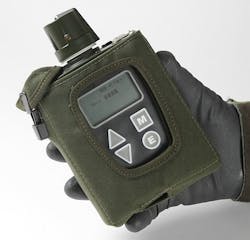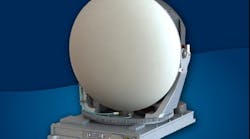Officials of the U.S. Intelligence Advanced Research Projects Agency (IARPA) in Washington issued a request for information Friday (IARPA-RFI-18-04) for the Components and Capabilities for Ultra-Low-Power Chemical Sensing Devices project, which is part of the Molecular Analyzer for Efficient Gas-phase Low-power INterrogation (MAEGLIN) program.
IARPA officials are interested in existing company research efforts into ultra-low-power chemical sensing collection systems, separation systems, detection and identification, vacuum systems, and power systems.
The technology necessary for local and continuous chemical monitoring must provide high sensitivity and accuracy, be robust in the presence of complex chemical mixtures, and be contained in a small, ruggedized package with autonomous operation. Current technology falls short of meeting all of these requirements.
Related: Air Force chooses fourth company for active infrared spectroscopy chemical-detection
The overall MAEGLIN program seeks to develop an ultra-low-power chemical analysis capability to detect and identify explosives, chemical weapons, industrial toxins and pollutants, narcotics, and nuclear materials in chemical environments with significant background and interferents.
In MAEGLIN phase 1 IARPA funded three separate areas to develop component technologies for an eventual integrated prototype. The technology areas are chemical collection, separation, and identification. The program's second phase to develop a prototype chemical-detection system should begin next month.
MAEGLIN phase 1, however, did not include research into vacuum or power systems, which will be of significant importance in phase 2 metrics. MAEGLIN phase 2 will demonstrate integrated prototype systems in two capability tracks: forensic identification and screening identification.
Forensic identification seeks solutions to collect chemicals at concentrations potentially several orders of magnitude lower than the ambient chemical background, separate these chemicals from interferents, and analyze the complex mixture with positive identification of a broad range of species.
Related: Industry asked for technologies to detect and counter chemical and biological weapons
An interferent is any chemical with similar physical or spectral properties, and is known to be a false alarm trigger. The ability to screen for several chemical targets will help analyze subtle changes in the chemical effluent.
Screening identification seeks technologies to collect a moderately complex chemical mixture, screen out common background materials and interferents, and automatically identify the presence of a target compound.
Component technology approaches of interest in MAEGLIN phase 2 will not be limited to the approaches funded in MAEGLIN phase 1, and all technology approaches are of interest in MAEGLIN phase 2.
The goal of this RFI is to gather information about component level technology that has been developed inside and outside of the MAEGLIN phase 1 efforts and to share that information with those interested in submitting proposals for MAEGLIN phase 2 to facilitate teaming and overall creativity of system approaches.
Related: Army orders handheld chemical warfare detectors from Smiths Detection
More information on MAEGLIN phase 2 is online at www.iarpa.gov/index.php/research-programs/maeglin/maeglin-phase-2. A draft RFP for the MAEGLIN phase 2 program is online at https://www.fbo.gov/index.php?s=opportunity&mode=form&id=dcabbcf4cedf99e62c0c35485429b1b3&tab=core&_cview=0.
Companies interested should email five-page white papers no later than 1 June 2018 to IARPA at [email protected].
Email questions or concerns to Kristy DeWitt, the IARPA MAEGLIN program manager, at [email protected].
More information is online at https://www.fbo.gov/notices/50e82c3b428429a6a478b2a9f29e1d01.
Ready to make a purchase? Search the Military & Aerospace Electronics Buyer's Guide for companies, new products, press releases, and videos



